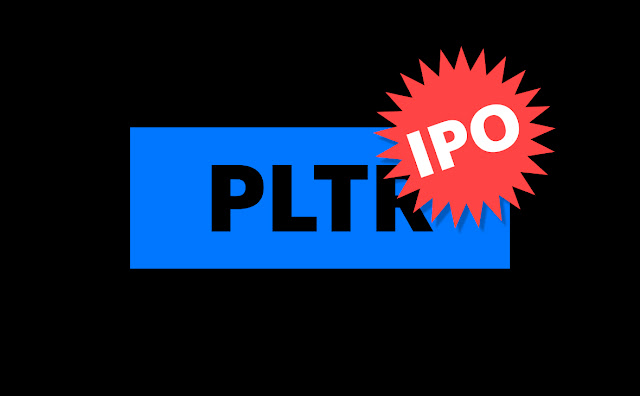IPO of the month: Palantir's most secretive startup and its U.S. intelligence software
On September 29, a software company that manufactures big data analytics software will place its shares on the New York Stock Exchange. This will not be a traditional IPO, but a direct listing
IPO date:September 29Exchange: NYSE
Ticker: PLTR
Risks:lack of profit and dependence on several large clients
Opportunities:Potential growth of the artificial intelligence platform market
American software company Palantir Technoligies plans to enter the New York Stock Exchange through a direct listing. This means that the company will not be able to issue new shares and attract new capital. It will only enable existing shareholders to sell their Securities other investors.
Initially, the project was planned to enter the stock exchange on September 23, but later postponed the date to September 29. Palantir's registered shareholders, including management, want to sell 257 million securities.
In the third quarter, about 36 million shares of the company were sold as part of private secondary transactions. From January 1 to September 1 of this year, prices ranged from $4.17 to $11.5 per paper, and the weighted average was $6.02. If Palantir places shares at the highest price ($11.5), Market value the company will make $18.8 billion, Renaissance Capital said. The diluted market value (i.e. taking into account the possible issuance of new shares) could amount to $25.9 billion.
How Palantir's business developed
American software company Palantir appeared in 2003. It was created by PayPal founder Peter Thiel, as well as his former colleagues - Alex Karp, Stephen Cohen, Nathan Gettings and Joe Lonsdale, who are called "PayPal Mafia".
Palantir creates software that analyzes and protects information. For example, phone calls, financial data, photos and messages in social networks. Initially, the company began supplying the product to U.S. intelligence to assist in counterterrorism investigations and operations. Palantir products analyze the movements of criminals and help to know the time and place of the crimes being prepared.
According to The Wall Street Journal, it is believed that the company's analysts helped the government to catch Osama bin Laden, who founded the terrorist organization al-qaeda (prohibited in Russia).
Then the startup started working with commercial companies. In total, 125 customers in 150 countries used Palantir products in the first half of 2020.
How the products of the most secretive startup get into scandals
The company has developed two main software platforms.
Palantir Gotham is the company's first platform. It was created for defense and intelligence analysts. It allows you to identify patterns deeply hidden in data sets - from intelligence signals to reports of confidential informants.
Palantir Foundry is a platform for commercial companies. It is designed to make it easier for them to understand, manage, and protect their data. This product is changing the way organizations interact with information, creating a central operating system for their data. In addition to organizations, the platform is used by several government customers.
However, the work with personal data also caused criticism. As Bloomberg writes, "Palantir knows everything about you." According to the agency, in 2009 JP Morgan hired a group of Palantir analysts to monitor the bank's employees "allegedly to protect against treacherous traders and other scoundrels."
The company's software collected and analyzed email, browser history, printer activity, transcription of telephone conversations. The agency notes that people were shocked that neither Palantir nor the bank had any restrictions. It all ended when JP Morgan's top managers found out that they were also being watched.
However, Palantir states that its platforms were designed from the outset to protect personal information and prevent the misuse of such data. "We do not collect, analyze or sell data. We create software platforms that allow our customers to integrate their own data that they already have," the IPO prospectus says.
Market size and competition
Palantir estimates that the company's total target market is approximately $119 billion. Palantir calculated this figure by multiplying the number of potential customers worldwide - 6,000 companies with revenues of more than $500 million - by the estimated annual value of a potential contract.
In the public sector, the target market is higher at $63 billion, of which $26 billion is in the United States and $37 billion is on the international market. The company took into account government agencies in the U.S. and allied countries "whose values align with liberal democracies."
Based on data from the International Monetary Fund, Palantir found that about 5% of government expenditure comes from software and consulting services.
In the Research and Markets study, experts estimatedthat the average annual growth rate of the artificial intelligence platform market will be 33% during 2020-2024. According to their data, this market will increase by $12.51 billion.
Financial performance
In 2019, the company generated revenue of $742.6 million, which is 25% more than in 2018 ($595.4 million). For the first half of 2020, during a period of significant geopolitical instability and economic downturn, Palantir's revenue reached $481.2 million, which is 49% more than in the same period last year.
However, the company has never made an annual profit since its founding. Palantir's net loss was $579.6 million in 2019, while in the first half of 2020 it decreased to $164.7 million compared to the same period last year.
Palantir noted that the improvement in financial performance is due to increased revenue and reduced time required to install the software. In addition, the number of software engineers involved in this process has decreased. From the second quarter of 2019, the time required to install the software and start running it has been reduced fivefold to two weeks.
Risks of investing in palantir business
In the IPO prospectus, the startup pointed to the risks that may arise when investing:
The company has suffered losses every year since its founding. Palantir expects operating expenses to increase in the future;
The company may not be able to sustain revenue growth in the future;
Sales of a company's product require a significant amount of time and money, and the sales cycle is often long and unpredictable;
A limited number of customers account for a significant portion of Palantir's revenue. If existing customers stop shopping or renew their contracts, the revenue may decrease;
Financial results can fluctuate significantly each quarter. This makes it difficult to predict future indicators;
The company's platforms are complex and have to be implemented for a long time;
If the project is not successful in developing and implementing new technologies to meet the needs of customers, the business may suffer;
Palantir's reputation may suffer from news about her business in the media. Including publications based on inaccurate and misleading information;
If unauthorized access to Palantir software is obtained, attackers can obtain sensitive data. In this case, the reputation of the company's products and services will suffer, and it may suffer losses;
The structure of the company's common shares leads to the fact that the right to vote is concentrated in certain shareholders, in particular, the founders of Palantir and a number of other people. Other shareholders have no opportunity to influence the outcome of important transactions.




Comments
Post a Comment